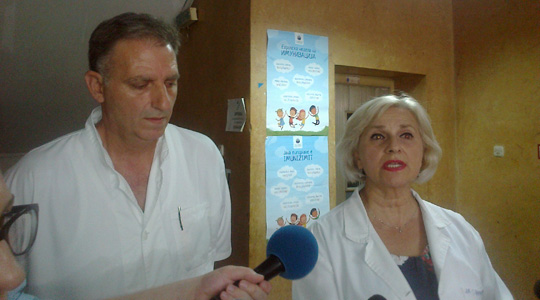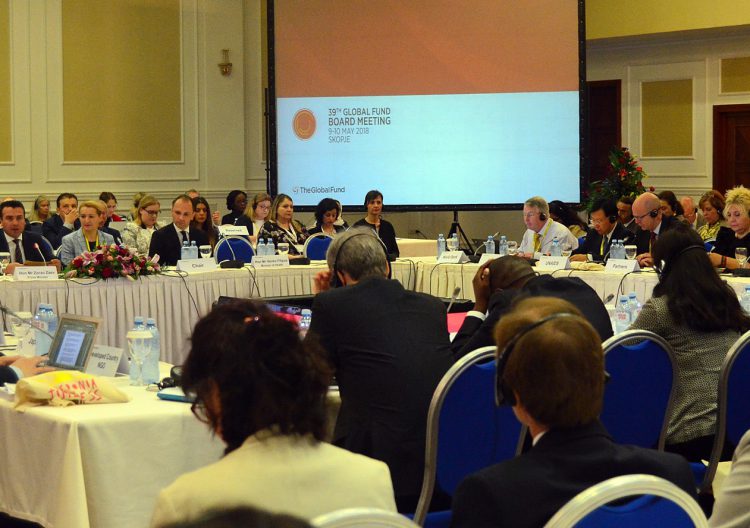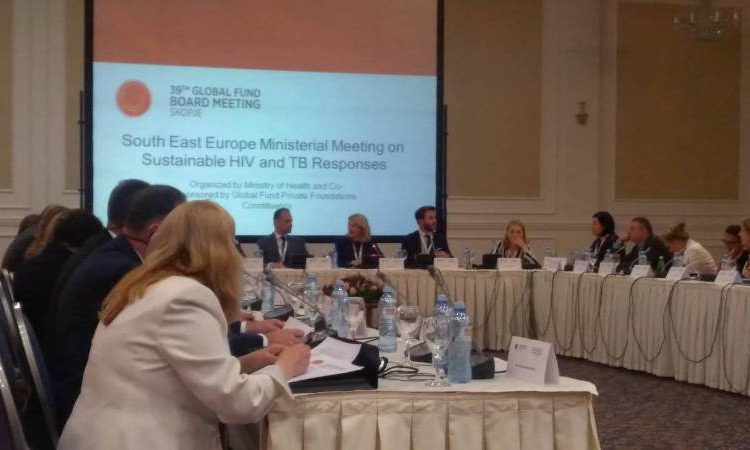ADDRESS BY THE SECRETARY GENERAL OF THE REGIONAL COOPERATION COUNCIL (RCC),
MR. GORAN SVILANOVIC
INFORMAL MEETING OF THE MINISTERS OF FOREIGN AFFAIRS OF THE SOUTH EAST EUROPEAN COOPERATON PROCESS (SEECP)
10 APRIL 2013, SKOPJE
Mr. Chairman Minister Poposki, Excellencies, Ladies and Gentlemen,
It is an honour for me to be here today and address this distinguished forum. This is my first meeting since I became the Secretary General of the RCC, and I would like to express gratitude for the support provided during my election to this important and responsible post.
The mission ahead of us, in terms of strengthening and consolidating regional cooperation, upholding an all-inclusive and regionally-owned framework and advancing on the European and Euro-Atlantic integration path, to name just a few, highlights the importance of an active engagement within the region in ensuring prosperity and stability in SEE.
I look forward to working relentlessly towards fulfilling the mission entrusted to me. In so doing, I will make the best use of your support and initiatives that proved to be vital for the RCC since its establishment five years ago.
Dialogue and cooperation have been the prevalent features of the regional cooperation process in SEE. If I may be candid and straightforward, they are nothing short of binding principles that stand behind the myriad of positive outcomes attained in the region.
I would say that a case in point is the excellent cooperation between the RCC and the current SEECP Chair-in-Office. This strategic synergy has been the key behind an effective coordination of activities between the SEECP C-i-O and RCC. In this final sprint to the SEECP high-level events and the RCC Annual meeting, to be held at the beginning of June in Ohrid, the results obtained should coalesce into a genuine political commitment from the region. 2
We should be mindful of course that the region is still fluctuating on the ladder of stability and well-being. A duality in SEE, whereby the struggle between going forward and lagging behind, absorbs most of the potential needed to ensure a durable progress across many vital sectors.
The situation in the region is sometimes exacerbated by different perceptions about what constitutes real and immediate problems. Whether these are the consequences of the economic and financial crisis, the deep social dissonances, the lethargic steps in dealing with bilateral and regional issues or the declining quality of governance, are important queries. But, the differing perceptions can be indicators of the willingness of the region to work together in catching up with the other more developed parts of Europe.
In this respect, the progress in SEE can be said to have been decidedly mixed. However, we should of course look at the positive aspects too, as they offer the guidelines for the future.
The SEE aspirants are moving on the European and Euro-Atlantic integration paths in accordance with their individual merits. Around the table today, we have acceding countries preparing to join the community of 27 EU member states, countries that have been granted candidate status, countries working to achieve candidate status and eventually start EU accession negotiations, countries whose European aspirations are pursued within a different EU institutional framework, as well as several EU member states that are providing great support to the efforts to the SEE aspirants.
We are all well aware that an active EU enlargement policy and maintaining its momentum remains a strategic goal for the EU and the region. This includes regional cooperation, as an important EU membership pre-condition, but also as a means to foster dialogue, reconciliation and stability across the SEE region.
This is also one of the main reasons for consolidating regional cooperation within the SEECP framework. As the most relevant political forum, fully regionally owned and governed from the very beginning, the SEECP is appropriately positioned to cope with the faced-paced and demanding environment in the region. The ideas presented by the SEECP C-i-O and discussed yesterday by the SEECP Political Directors may be beneficial in this sense.
Certainly, the discussions on future forms and scope of cooperation within the SEECP will also influence the RCC, as the effective operational arm of this political forum. In the process of further elaboration of this idea, the RCC is ready to engage its capacities on ensuring appropriate follow-up of the agreed activities. 3
Excellencies,
This last point leads me to what RCC has been doing and intends to do in order to help improve the conditions in the SEE region.
RCC can be proud to have ensured all-inclusiveness in its activities. It shows that the region is able to take responsibility for its own future and create a climate for overall progress in the spirit of tolerance and cooperation.
By now, RCC has a solid foundation and an anchor for a new vision. It only needs to look ahead into the future.
The RCC has paved the road for the SEE 2020 – a Job-creating Growth and EU integration Strategy, leaning on the EU’s strategy Europe 2020. We have been actively working on the SEE 2020 since November last year, when ministers of economy from the region adopted the strategy’s main targets in the areas of economic growth, trade, investment, education, employment and governance. The basic goal is to turn the tides against the present economic stagnation by improving living conditions in the region, bringing back its focus on competitiveness and development and fully concentrating on growth.
I believe that the SEE 2020 strategy and its Action Plan, given its overarching nature, needs full support of the governments concerned and the Prime-Ministers in order to address effectively the region’s economic development priorities and to make it more competitive, while bringing it closer to EU integration.
Along the same lines, let me just mention that the successful implementation of the RCC Strategy and Work Programme (SWP) 2011-2013 gave way to the preparation and programming of a successor strategy covering the period 2014–2016. Based on the achievements attained, an in-depth knowledge of the region and its needs, as well as the EU accession requirements, the RCC has developed its second SWP 2014-2016 with the SEE 2020 as its central pillar.
With the SWP 2014-2016, the RCC will assume greater responsibility in fostering long-term planning and vision building in regional cooperation, hence reflecting the growing capacity of its main stakeholders from SEE in the area of strategic planning and development of regional platforms and programmes.
The upcoming SEECP Summit in June 2013 would represent a key opportunity to support the SEE 2020, thereby strengthening its foundation as the region prepares to adopt it by the end of this year. Therefore, the solid foundation and the anchor of the new vision will be in place.
Thank you for your attention.



